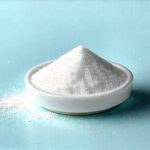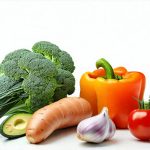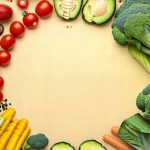Constipation is a surprisingly common digestive issue affecting millions worldwide. Often dismissed as a minor inconvenience, chronic constipation can significantly impact quality of life, leading to discomfort, bloating, and even more serious health complications if left unaddressed. Understanding the underlying causes – ranging from dietary habits and hydration levels to lifestyle factors and medical conditions – is the first step towards finding effective relief. While various remedies exist, adopting a strategically designed diet rich in fiber, fluids, and specific nutrients like magnesium can be a powerful long-term solution for promoting regular bowel movements and overall digestive health.
This article delves into the intricacies of a constipation diet, focusing specifically on incorporating magnesium-rich foods to alleviate symptoms and support healthy gut function. We’ll explore why dietary changes are crucial, identify key food groups that combat constipation, and provide practical tips for integrating these foods into your daily routine. It’s important to note that this information is for general knowledge and informational purposes only, and does not constitute medical advice. If you are experiencing chronic or severe constipation, consult with a healthcare professional.
Understanding the Role of Diet in Constipation Relief
Diet plays an undeniably pivotal role in managing and preventing constipation. A diet lacking in fiber often leads to slower transit time within the digestive system, resulting in harder stools that are more difficult to pass. Insufficient fluid intake exacerbates this problem, further solidifying stool consistency. However, it’s not just about fiber and water; certain nutrients, like magnesium, are essential for proper bowel function. Magnesium helps draw water into the colon, softening stools and promoting peristalsis – the wave-like muscle contractions that move waste through the digestive tract.
A holistic dietary approach to constipation relief involves a multi-pronged strategy: increasing fiber intake gradually (to avoid bloating), staying adequately hydrated throughout the day, incorporating magnesium-rich foods, and potentially reducing intake of processed foods that can contribute to sluggish digestion. It’s also crucial to identify any food intolerances or sensitivities that might be contributing to digestive discomfort. Many people find relief simply by making small, sustainable changes to their existing diet rather than attempting drastic overhauls. Additionally, if you’re considering a more restrictive approach, it is helpful to understand foods to be cautious with on an elimination diet.
Furthermore, the gut microbiome – the community of trillions of bacteria residing in our intestines – significantly impacts bowel regularity. A diet rich in prebiotic and probiotic foods supports a healthy microbiome, which in turn promotes optimal digestive function. Fermented foods like yogurt (with live cultures), kefir, sauerkraut, and kimchi can introduce beneficial bacteria, while prebiotic-rich foods such as onions, garlic, bananas, and asparagus provide nourishment for these bacteria to thrive. A well-balanced gut health meal plan with fermented and fiber-rich foods can be a great starting point.
Magnesium and Constipation: A Powerful Connection
Magnesium is an often-underestimated mineral with a profound impact on digestive health. As mentioned earlier, it plays a key role in softening stools by drawing water into the colon. This natural osmotic effect helps ease stool passage and prevents constipation. However, many people are deficient in magnesium due to factors like poor dietary habits, stress, and certain medical conditions or medications.
Food sources of magnesium are often preferred over supplements because they come packaged with other essential nutrients and are generally better absorbed by the body. Excellent food sources include leafy green vegetables (spinach, kale), nuts and seeds (almonds, pumpkin seeds), legumes (black beans, lentils), whole grains (brown rice, quinoa), dark chocolate, and avocados. Incorporating these foods into your diet can naturally increase your magnesium intake and support regular bowel movements.
It’s also worth noting that different forms of magnesium have varying bioavailability and effects on the body. Magnesium citrate is often recommended for constipation relief because it has a laxative effect due to its high osmotic power, drawing water into the intestines. However, excessive amounts can cause diarrhea, so moderation is key. Other forms like magnesium oxide are less readily absorbed and may be more suitable for addressing deficiencies without causing significant digestive upset.
Foods Rich in Magnesium for Constipation Relief
- Dark Leafy Greens: Spinach, kale, and collard greens are nutritional powerhouses packed with magnesium, fiber, and other essential vitamins and minerals. Adding a handful to your salads or sautéing them as a side dish is an easy way to boost your intake.
- Nuts & Seeds: Almonds, pumpkin seeds, chia seeds, and flaxseeds are all excellent sources of magnesium and healthy fats. They can be enjoyed as snacks, sprinkled on yogurt or oatmeal, or added to smoothies.
- Legumes: Black beans, kidney beans, lentils, and chickpeas provide a substantial amount of magnesium alongside protein and fiber. Incorporate them into soups, stews, salads, or use them as a base for dips like hummus.
Building a Constipation-Relieving Meal Plan
Creating a meal plan centered around magnesium-rich foods and high-fiber options can significantly improve bowel regularity. Here’s a sample day:
- Breakfast: Oatmeal with berries, chia seeds, and a sprinkle of almonds.
- Lunch: Salad with spinach, grilled chicken or chickpeas, avocado, and a light vinaigrette dressing.
- Dinner: Lentil soup with whole-grain bread.
- Snacks: A handful of pumpkin seeds, dark chocolate (70% cacao or higher), or a banana.
Remember to drink plenty of water throughout the day – at least eight glasses – to help soften stools and facilitate digestion. Regular physical activity can also contribute to improved bowel function, so aim for at least 30 minutes of moderate-intensity exercise most days of the week. For those struggling with persistent issues, a daily digestive diet routine for IBS and constipation might be helpful to establish.
Practical Tips for Incorporating More Magnesium into Your Diet
- Start Small: Gradually increase your intake of magnesium-rich foods rather than making drastic changes all at once. This will help avoid digestive discomfort like bloating or diarrhea.
- Read Food Labels: Pay attention to the magnesium content listed on food labels, especially when choosing packaged products.
- Combine with Fiber: Magnesium works best when combined with adequate fiber intake. Ensure your diet includes plenty of fruits, vegetables, and whole grains.
- Stay Hydrated: Drinking enough water is crucial for maximizing the benefits of both magnesium and fiber.
- Listen to Your Body: Pay attention to how different foods affect your digestion and adjust your diet accordingly. If you’re looking for a more comprehensive approach, consider constipation relief with high-fiber and hydrating foods.
Disclaimer: This article provides general information on constipation relief through dietary changes, specifically focusing on magnesium-rich foods. It is not intended as a substitute for professional medical advice, diagnosis, or treatment. Always consult with a qualified healthcare provider if you have concerns about your health or before making any decisions related to your health or treatment.


















